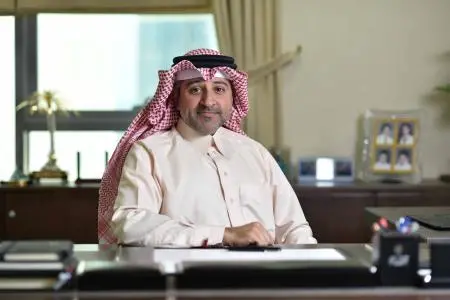PHOTO
Manama – BOK International (BOKI), the Bahrain-based wholesale branch of the leading Sudanese bank Bank of Khartoum, predicts a surge in pent up trade activity between Bahrain and Sudan with the permanent lifting of 20-year old US economic sanctions against Sudan. Although Bank of Khartoum was one of the few Khartoum-based entities to be removed from the sanctions list in 2011 due to its change in ownership structure which now consists mainly of UAE-based shareholders, all Sudan-related companies had been seriously affected by the stigma of the trade restrictions. Investor confidence is now on the rise with BOKI receiving a clear increase in interest in Sudan based investments by Bahrain-based investors and institutions.
The sanctions, which were imposed in 1997 by the US government, consisted of a comprehensive trade and investment embargo against Sudan that had lasted until the final days of the Obama Administration in January 2017 when President Barack Obama signed an Executive Order revoking the sanctions against Sudan, citing the Government of Sudan’s progress in achieving milestones agreed upon in negotiations. The decision on the final lifting of the sanctions was left to the Trump Administration, which had announced that it will permanently revoke the economic sanctions, followed by a notice published by the State Department confirming the decision in the Federal Register on 6th October 2017.
BOKI CEO, Nabeel Altattan, said: “What is remarkable about this decision is that it comes during a time when the US government is viewed as becoming more stringent, which is a testament to the significance of Sudan’s achievements in creating a progressive country. With the sanctions finally lifted, companies can now reap the full benefits of investing in Sudan, which boasts one of the most lucrative agricultural and energy industries in the world. We deal with clients globally from our branch in Bahrain, so we are now aligning our resources to facilitate this expected boom in trade, of which early indicators are already apparent.”
This increase in the number of GCC-based investors eying Sudan’s high return and fast developing economy is also helping to stabilise the currency exchange rate of the Sudanese Pound against the US dollar. The volatility in the exchange rate, and fear of parallel market transactions, had previously been a problem, shaking confidence in the currency. Now trade is expected to go through a boom period as large corporations and investors mobilise to inject money into the Sudanese economy.
Altattan added: “In addition to our currently available products such as Sharia-compliant Mudaraba deposits, and Unrestricted Investment Accounts offering very attractive returns compared to the local market, we will focus on offering trade-related products such as Letters of Credit and Letters of Guarantee that will facilitate these investments. The Central Bank of Bahrain has already done a remarkable job of providing a strong regulatory framework for financial institutions in the Kingdom, which has helped create a world-class banking sector, so our task is significantly streamlined. We are expecting to use this platform to play a central role in strengthening trade and economic ties between Sudan and the GCC going forward.”
With one third of its total mass suitable for agricultural development, and agricultural products amounting to over 90% of its exports, Sudan’s primary form of investment is agriculture. The quantity of its agricultural resources has been noted as being large enough to potentially provide food security for the entire Arab world, something that Gulf countries have taken note of, as evident by Sudan’s Ministry of Investment granting of 100,000 acres for cultivation to the Kingdom of Bahrain in 2014.
BOKI-Bahrain Branch is a wholesale Islamic bank, licensed by the Central Bank of Bahrain, that deals mainly with financial institutions, large corporations, small and medium enterprises, high net worth individuals, and government entities around the world. Bank of Khartoum, which had previously been a government-owned entity, was acquired by UAE investors in 2011, subsequently being removed from the US Office of Foreign Assets Control (OFAC) list to become Sudan’s leading bank.
-Ends-
© Press Release 2017



















